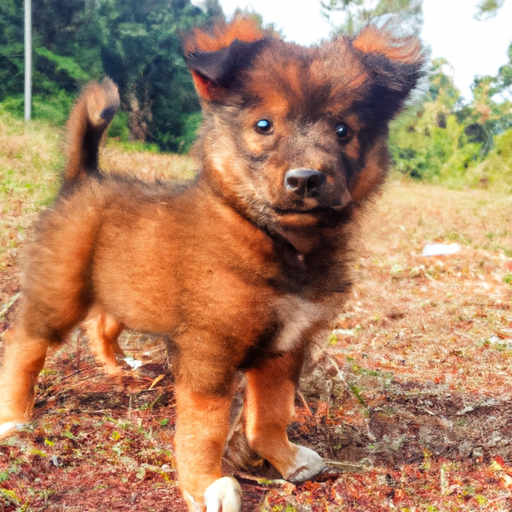As a caregiver, you may have found yourself asking this question: “how long do dogs stay puppies?” If you have a new furry friend in your house, you’re probably wondering how long this adorable phase will last. Let’s dive into this topic and unravel the mystery.
1. Understanding Puppyhood
Puppyhood is a stage filled with learning and growth. This stage is not just about physical growth, but also mental and emotional development. Here are some crucial aspects of puppy development:
- Physical Development: Puppies grow quickly. Their size and breed significantly influence the speed of their growth.
- Mental Development: During this stage, puppies learn about their environment and how to interact with it.
- Emotional Development: Puppies also learn about social interaction and build emotional connections with their human companions and other pets.
2. When Does Puppyhood End?
The end of puppyhood varies based on your dog’s breed and size. Larger breeds tend to mature more slowly than smaller ones. Here’s a simple table to illustrate:
| Size | Puppyhood Ends |
|---|---|
| Small Breeds | 9 to 12 months |
| Medium Breeds | 12 to 16 months |
| Large Breeds | 2 to 3 years |
Remember, these are rough estimates and your dog might mature at a different pace.
3. Transitioning from Puppy to Adult
The transition from puppy to adult can be a challenging time for both you and your furry friend. Here are some tips to help you navigate this journey:
- Provide a Balanced Diet: As your puppy grows, their dietary needs will change too. Consult your vet to ensure your dog is getting the right nutrition.
- Maintain Regular Exercise: Regular exercise is crucial for a growing dog. It helps to keep them physically fit and mentally stimulated.
- Sustain Training and Socialization: Continued training and socialization are essential during this transition period. It helps your dog to develop good behavior and social skills.
4. Challenges of Puppyhood
Just like human children, puppies can be a handful. They are full of energy and curiosity, which can sometimes lead to mischief. Here are the most common challenges you might face:
- Housebreaking
- Chewing on everything
- Excessive barking
- Separation anxiety
Remember, patience and consistency are key during this phase.
5. Enjoying the Puppy Phase
While the puppy phase can be challenging, it is also filled with joy and memorable moments. Here are some ways to enjoy this phase:
- Play games with your puppy
- Take lots of pictures
- Enjoy the cuddles and puppy breath
Remember, puppyhood doesn’t last forever, so make the most of it while you can!
FAQ
Q: When do puppies stop growing?
A: Small breeds usually stop growing between 6-8 months, while larger breeds can continue to grow up to 24 months.
Q: Are puppies harder to train than adult dogs?
A: Not necessarily. Puppies are like sponges and can absorb new information quickly. However, they also have short attention spans.
Q: When should I start training my puppy?
A: You can start basic training as soon as you bring your puppy home. It’s never too early to start!
Q: How much exercise does a puppy need?
A: Typically, a puppy should have five minutes of exercise per month of age up to twice a day.
Remember, every puppy is unique and may develop at their own pace. So, sit back, relax, and enjoy this special time with your new best friend.



